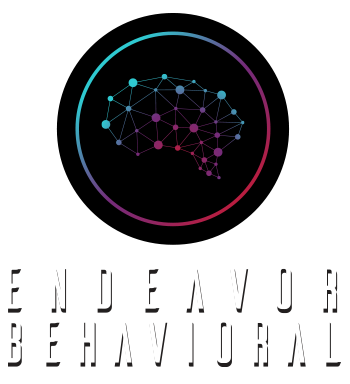Who Can Provide ABA?
What Board oversees the practice of Applied Behavior Analysis and its practitioners?
The Behavior Analyst Certification Board (BACB) is a nonprofit 501(c)(3) corporation established to meet professional credentialing needs identified by Behavior Analysts, governments, and consumers of behavior analysis services. The mission of the BACB is to protect consumers of behavior analysis services worldwide by systematically establishing, promoting, and disseminating professional standards. The BACB has established uniform content, standards, and criteria for the credentialing process that are designed to meet:
- The legal standards established through state, national, and case law;
- The accepted standards for certification programs; and
- The “best practice” and ethical standards of the behavior analysis profession.
The BCBA and BCaBA certification programs are currently accredited by the National Commission for Certifying Agencies (NCCA), the accreditation arm of the Institute for Credentialing Excellence. NCCA reviews and oversees all aspects related to ensuring the development and application of appropriate credentialing processes.
Training and Credentialing of Behavior Analysts
ABA is a specialized behavioral health treatment and most graduate or postgraduate training programs in psychology, counseling, social work, or other areas of clinical practice do not provide in-depth training in this discipline. Thus, an understanding of the credentialing process of Behavior Analysts by the Behavior Analyst Certification Board® (BACB®) can assist health plans and their subscribers in identifying those providers who meet the basic competencies to practice ABA.
The formal training of professionals certified by the BACB is similar to that of other medical and behavioral health professionals. That is, they are initially trained within academia and then begin working in a supervised clinical setting with clients. As they gradually demonstrate the competencies necessary to manage complex clinical problems across a variety of clients and medical environments, they become independent practitioners. In summary, Behavior Analysts undergo a rigorous course of training and education and have an “internship” period in which they begin by working under the direct supervision of an experienced Behavior Analyst.
It should be noted that other licensed professionals may have ABA within their particular scope of training and competence. In addition, a small subset of clinicians may be licensed by another profession and also hold a credential from the BACB, thereby providing evidence of the nature and depth of their training in ABA.
While health plan coverage of behavioral health treatments supervised by Behavior Analysts is relatively recent, Behavior Analysts, like other medical and behavioral health providers, rely upon strategies and procedures documented in peer-reviewed literature, established treatment protocols, and decision trees.
They continually evaluate the current state of the client and customize treatment options based on the results of direct observation and data from a range of other assessments. They also solicit and integrate information from the client and family members and coordinate care with other professionals.
Continuing Education and Maintaining Certification
BACB certificants are required to attest to their compliance with the organization’s ethical and disciplinary rules on an annual basis and obtain 24 (BCaBA) or 36 (BCBA, BCBA-D) hours of continuing education credits every three years, three hours of which must relate to ethics or professionalism. Agencies that employ Behavior Analysts need to support and provide this training as needed.
What will my Treatment Team look like in ABA?
Most ABA treatment involves a tiered service delivery model wherein Registered Behavior Technicians (RBTs) implement the treatment programs designed and supervised by a Board Certified Behavior Analyst (BCBA). This approach of using RBTs to deliver ABA has been empirically-validated to be the primary mechanism through which many significant milestones are achieved in cognitive, language, social, behavioral and adaptive domains. This tiered model allows for the BCBA to focus on their clinical and supervisory responsibilities, ensuring effective case-management with the support of their BCaBAs and RBTs on their treatment team. A Treatment Team is typically comprised of one BCBA, one BCaBA, and 4-6 RBTs that your child will rotate through on a daily or weekly basis to ensure generalization and maintenance of skills.
What qualifications does my Treatment Team have?
The BACB credentials and recognizes practitioners at four levels. Each of these levels encompasses specialized and intensive training in ABA, as well as intern hours and on-going supervision and/or continuing education regulated by the BACB.
Here is a quick overview of each type of practitioner and the required levels of training and education associated with each, as well as their typical roles:
| Title | ABA Specialized Training? | Board Exam Required? | Min. Education Required | Role |
|---|---|---|---|---|
| Registered Behavior Technician (RBT) | Yes | Yes | High School Diploma | Delivers treatment protocol under the supervision of a BCBA |
| Board Certified Assistant Behavior Analyst (BCaBA) | Yes | Yes | Bachelor’s Degree | Provides clinical direction, supervision, and case management under the supervision of a BCBA |
| Board Certified Behavior Analyst (BCBA) | Yes | Yes | Master’s Degree | Provides clinical direction, supervision, and case management, including activities of all support staff |
| Board Certified Behavior Analyst – Doctoral (BCBA-D) | Yes | Yes | Doctoral Degree | Provides clinical direction, supervision, and case management, including activities of all support staff |

